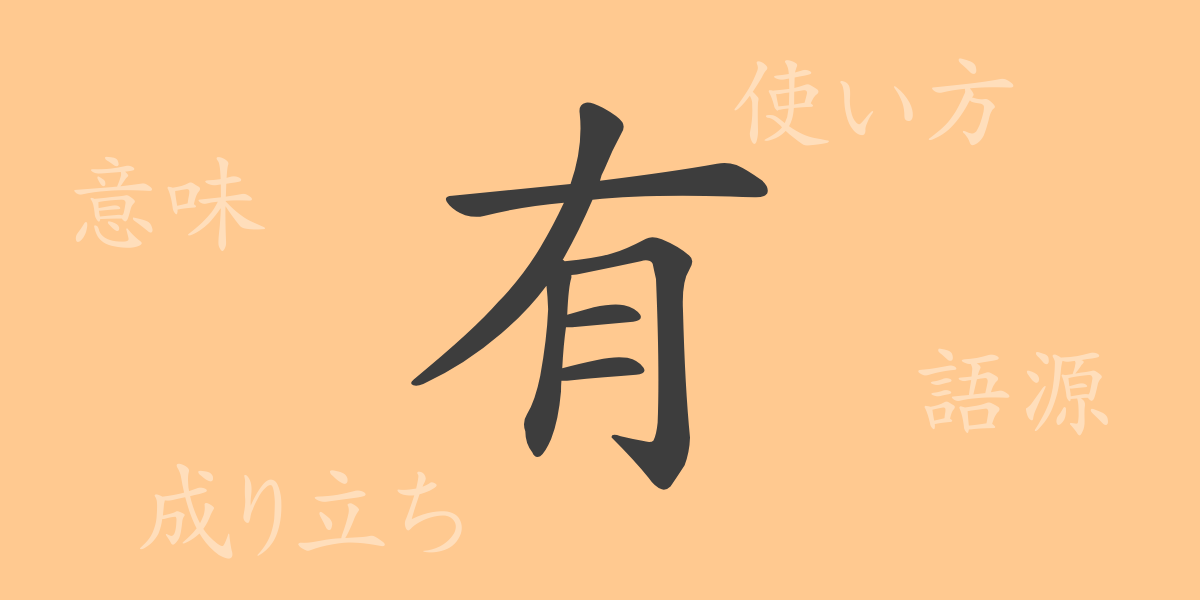The richness of the Japanese language is reflected in its kanji(かんじ) culture. Each character holds meanings and histories that convey culture and thought through words. This time, we spotlight the commonly used kanji(かんじ) “有” (ゆう) and delve into its charm and significance in our daily lives.
Origin of 有 (ゆう)
The kanji(かんじ) “有” (ゆう) originated in ancient China. Derived from pictographs, this character illustrates a hand holding meat. This symbolizes “having” or “existing,” representing the concepts of possession and existence.
Meanings and Usage of 有 (ゆう)
“有” (ゆう) means “to be” or “to have.” It is used to indicate the existence of things or the state of possessing something. Additionally, it serves as an auxiliary verb to express affirmation, making it a versatile kanji(かんじ) used in various contexts.
Reading, Stroke Count, and Radical of 有 (ゆう)
“有” (ゆう) is one of the frequently used kanji(かんじ) in Japanese.
- Reading: On’yomi (おんよみ) is “ユウ” (ゆう), and Kun’yomi (くんよみ) is “ある” (ある).
- Stroke Count: “有” (ゆう) has 6 strokes.
- Radical: The radical is “肉偏(にくづき)” (にくづき).
Idioms, Proverbs, and Phrases Using 有 (ゆう)
There are numerous idioms, proverbs, and phrases that include “有” (ゆう). Here are some examples along with their meanings:
- 有名(ゆうめい): Widely known or famous.
- 有益(ゆうえき): Beneficial or useful.
- 有無を言わさず(うむをいわさず): Forcing without obtaining the other’s consent.
- 有頂天になる(うちょうてんになる): To be extremely delighted or excited.
- 有情(ゆうじょう): Having affection or being compassionate.
Summary of 有 (ゆう)
The kanji(かんじ) “有” (ゆう) plays a fundamental and significant role in the Japanese language. Its usage is diverse, and you will frequently encounter it in daily life. Understanding the profound meanings of this single character enriches communication through words. As a commonly used kanji(かんじ) in Japan, “有” (ゆう) certainly “exists” in our language.

























